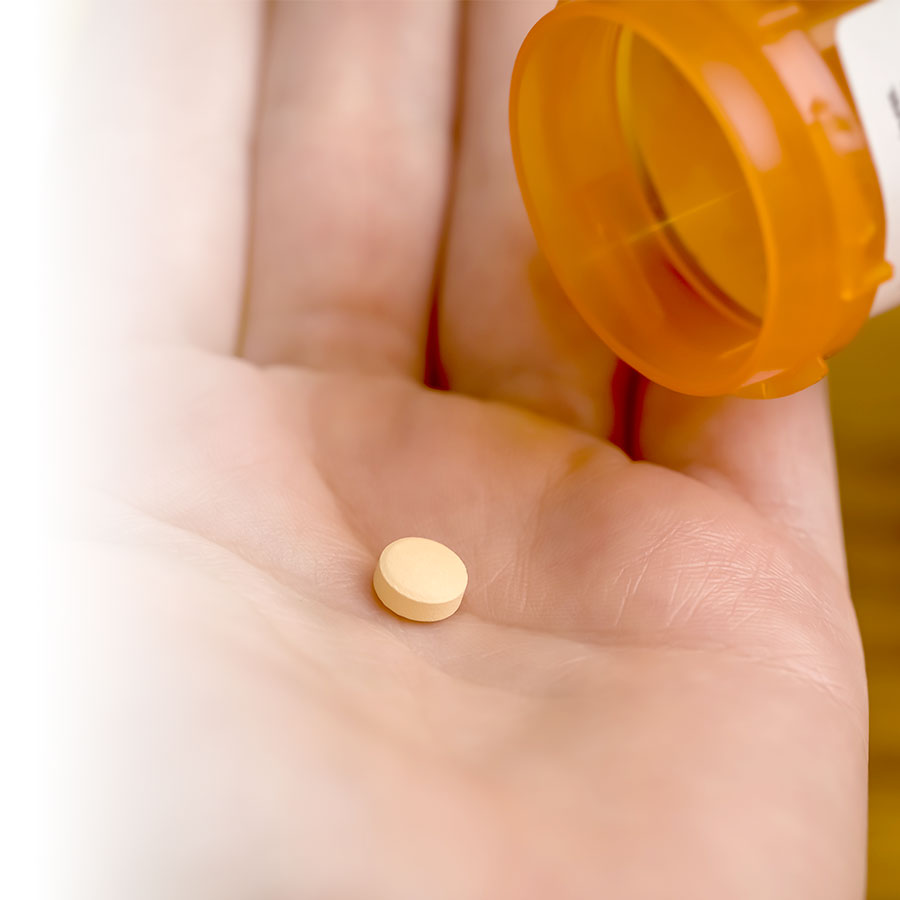If your doctor has prescribed an antidepressant, you are likely to have a lot of questions. Here is some information to help shed some light on the subject.
What is an antidepressant?
In order for the brain to function normally, cells that make up the brain must send messages between them. The brain chemicals responsible for transmitting these messages are called neurotransmitters. Neurotransmitters are at play in all of the brain’s functions, including mood.
When a person suffers from a depressive disorder, it is often caused by an imbalance of neurotransmitters in the brain. The main neurotransmitters involved in depression are called serotonin, dopamine, and noradrenaline. It is this imbalance that causes typical symptoms of depression such as sadness, insomnia, fatigue, difficulty concentrating, and loss of interest.
Antidepressants are medications intended to restore the balance of neurotransmitters in the brain. Their mode of action promotes optimal brain function, thus helping to relieve the symptoms of depression.
They can also be useful to treat a number of other conditions, such as anxiety disorders, eating disorders, chronic pain, migraine prevention, etc. Up to 50% of antidepressant prescriptions involve conditions other than depression itself.
Are all antidepressants the same?
There are several classes of antidepressants that act differently on the brain. Generally speaking, they are all considered to be effective and safe, but response to treatment varies from one person to the next. Therefore, it is sometimes necessary to try more than one antidepressant before finding the one best-suited to you.
The choice of a specific antidepressant depends on several factors, including:
- the symptoms experienced
- the treatments that have been tried
- certain personal characteristics
- medical history
- other medications that have been taken
It should be noted that the beneficial effect of an antidepressant in not immediate. Although your symptoms may improve in the weeks that follow the beginning of treatment, it often takes between four and six weeks before feeling the full beneficial effects of treatment.
What are the main side effects of antidepressants?
Although antidepressants are effective drugs, they can sometimes cause adverse effects. In most cases, these effects are minor, transient and reversible when the medication is stopped. For instance, antidepressants may cause the following:
- nausea and vomiting
- headaches
- dry mouth
- constipation
- insomnia, and
- sexual side effects (decreased libido, anorgasmia, erectile dysfunction, etc.)
Speak to your pharmacist if some of the symptoms you experience seem to be related to an antidepressant. Pharmacists can suggest ways to reduce these effects. If they cause significant discomfort or if they persist, they can also contact your doctor to discuss therapeutic alternatives or refer you to the appropriate healthcare professional.
If you poorly tolerate an antidepressant, don't get discouraged. It is possible that another medication you try works wonders for you! In fact, it is rather common to have to try more than one medication before finding a treatment that works well. It is important to discuss with your healthcare professional about the options open to you to achieve the maximum benefits from your treatment.
What are the common beliefs or myths about antidepressants?
- "I can't believe I have sunk this low." Some people believe that taking an antidepressant is a sign of weakness. On the contrary, choosing to take medication shows a will to improve one's mental health in order to be in top form. Instead of having a dim view of the use of antidepressants, try to see them as a valuable tool to help you recover health.
- "I will be forced to take these for the rest of my life." It has been shown that antidepressants are not habit-forming. The duration of treatment using antidepressants depends on the condition of each individual. Some people will take them for a period of six months to a year, while others will continue treatment for a few years. The important thing is not the duration, but rather the benefits of the treatment.
- "I am doing well, so I can stop my treatment." You must be very careful before considering to stop your treatment. If the treatment is working, it is normal for you to be feeling better, which is excellent news! However, if you stop it too soon, you may compromise your recovery. The symptoms you experienced before could return in full force. Before modifying or interrupting your treatment, always seek advice from your pharmacist or doctor.
Additionally, find out how to stop taking the medication, as stopping abruptly can involve risks. Several antidepressants must be stopped gradually, step by step, to avoid withdrawal symptoms. Your pharmacist is best-suited to establish with you a gradual dosage reduction plan for your antidepressant, so everything goes well.
Many people have to take antidepressants at some point
in their lifetime. Choosing to begin this type of treatment can sometimes be difficult. It is important to make an informed decision based on thorough and reliable information. If you have any questions, don’t hesitate to speak to your pharmacist, who will gladly partner up with you on the path back to sunnier days and well-being.

